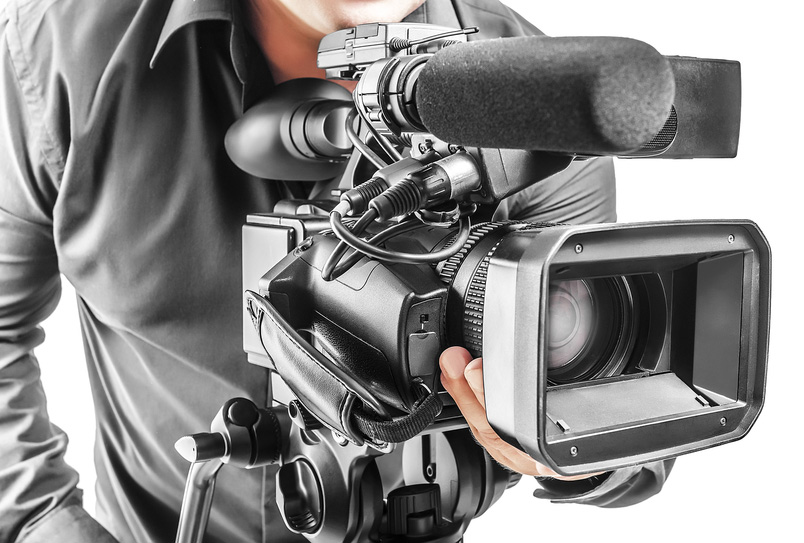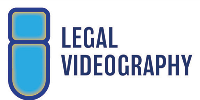Legal Videography: A Comprehensive Overview to Recording Depositions
Legal Videography: A Comprehensive Overview to Recording Depositions
Blog Article
Important Facets of Legal Videography for Effective Paperwork
Lawful videography plays an essential duty in the paperwork of essential occasions within the justice system, where precision and clarity are critical. As we explore these important elements, it ends up being obvious that the nuances of this method can have far-reaching effects for legal results.
Significance of Legal Videography
Legal videography plays a vital role in the judicial procedure by giving a reputable aesthetic record of testaments, depositions, and other substantial occasions. This aesthetic documentation serves numerous important functions, most significantly improving the credibility of proof provided in court. Unlike composed records, video clip recordings catch non-verbal hints, such as body movement and psychological actions, which can considerably affect a jury's perception of a witness's integrity and truthfulness.
In addition, lawful videography aids in protecting the stability of complex situations, making certain that nuances are precisely stood for. This ends up being especially vital in cases including professional testament, where aesthetic help can elucidate elaborate principles that might be testing to convey via text alone.
In addition, using videography can improve test procedures. By permitting jurors to watch recordings as opposed to relying solely on copyright, the process can end up being a lot more efficient and less vulnerable to false impression.
Technical Requirements
To effectively capture high-quality video clip in a legal setup, specific technological demands should be fulfilled. First and leading, the selection of video camera is vital; it should possess high-definition capacities, ideally 1080p or higher, to make certain clarity in visual documents. Furthermore, the video camera must have a dependable zoom feature to capture information from different distances without endangering picture top quality.
Lighting is an additional vital element. Natural light is favored, however extra lighting may be necessary to remove darkness and make certain all individuals are sufficiently illuminated (Legal Videography). Soft, diffused lights can help develop a professional look while staying clear of rough contrasts

Finally, secure recording devices is necessary. A tripod or other stablizing gear must be utilized to avoid unstable footage, which could interfere with the professionalism of the documents. Satisfying these technical needs will greatly improve the quality and performance of legal videography.
Conformity and Legal Criteria
In the world of legal videography, adherence to compliance and lawful criteria is critical to make sure the honesty and admissibility of recorded materials in court procedures. Lawful videographers must be well-versed in the appropriate legislations and regulations regulating the documentation of evidence. This includes understanding the policies of evidence, which determine exactly how video recordings can be used in court, in addition to personal privacy regulations that shield the rights of individuals captured on video.
Furthermore, videographers should get proper consent from all parties entailed in the recording process. This not only promotes transparency however additionally safeguards versus possible lawful consequences. Conformity with state-specific regulations is just as important, as the legal landscape varies significantly throughout jurisdictions.
Moreover, preserving high standards of technical quality is important, as poor audio or visual quality can lead to challenges concerning the integrity of the footage. Videographers need to likewise keep precise documents of the chain of custodianship for all video materials, making certain that they can demonstrate the credibility and stability of the recordings if examined in court. In significance, conformity with legal criteria develops the structure of dependable and effective legal videography.
Best Practices for Videographers
Abiding by compliance and legal standards establishes a solid structure for effective lawful videography, however ideal methods further boost the high quality and dependability of documented products. First of all, videographers must use premium equipment, consisting of cameras with sufficient resolution and audio recording devices that minimize background noise. This guarantees clarity in both visual and auditory components, which is vital for lawful paperwork.
Secondly, correct illumination is important to prevent darkness or too much exposure, thereby maintaining the honesty of the footage. Videographers ought to search the place in advance to establish optimal lights conditions, changing as essential.
In addition, mindful framing and make-up are essential. Topics need to be centered within the framework, and any relevant products or exhibitions should be clearly visible. This not just aids in quality but likewise helps in communicating context throughout lawful process.
In addition, preserving a neutral temperament and preventing personal biases while recording improves the professionalism of the videographer. Last but not least, attention to information in editing, including smooth changes and clear labeling of documents, makes certain that the end product is not just polished yet also simple to navigate for legal teams. Complying with these ideal techniques inevitably supports the objectives of legal paperwork.
Enhancing Evidentiary Value
Enhancing the evidentiary worth of lawful videography additional info needs a strategic approach that prioritizes both authenticity and clearness. Legal videographers need to make sure that the video documentation precisely mirrors the events, statements, or conditions being tape-recorded. This starts with the choice of top quality devices that captures clear sound and visual components, lessening distortion or disturbance that could weaken reputation.
Moreover, careful focus to detail is critical. Videographers should develop a stable video camera position, use proper lights, and prevent any kind of unneeded edits that can be regarded as changing the original material. Preserving a neutral point of view during recording aids preserve the authenticity of the evidence.
In addition, proper documents of the recording process-- including date, time, area, and any kind of pertinent contextual info-- can dramatically strengthen the like this evidentiary weight of the video clip. This metadata works as a crucial reference factor for credibility.

Final Thought

Legal videography plays a critical role in the documentation of critical occasions within the justice system, where precision and quality are paramount.In the realm of lawful videography, adherence to conformity and legal requirements is paramount to ensure the honesty and admissibility of documented products in court proceedings. Legal Videography. In essence, conformity with lawful standards develops the foundation of reliable and trusted legal videography
Adhering to compliance and lawful criteria develops a solid foundation for effective legal videography, but best methods better improve the quality and dependability of taped materials.In final thought, the importance of lawful videography exists in its ability to give clear, reputable documentation for legal procedures.
Report this page